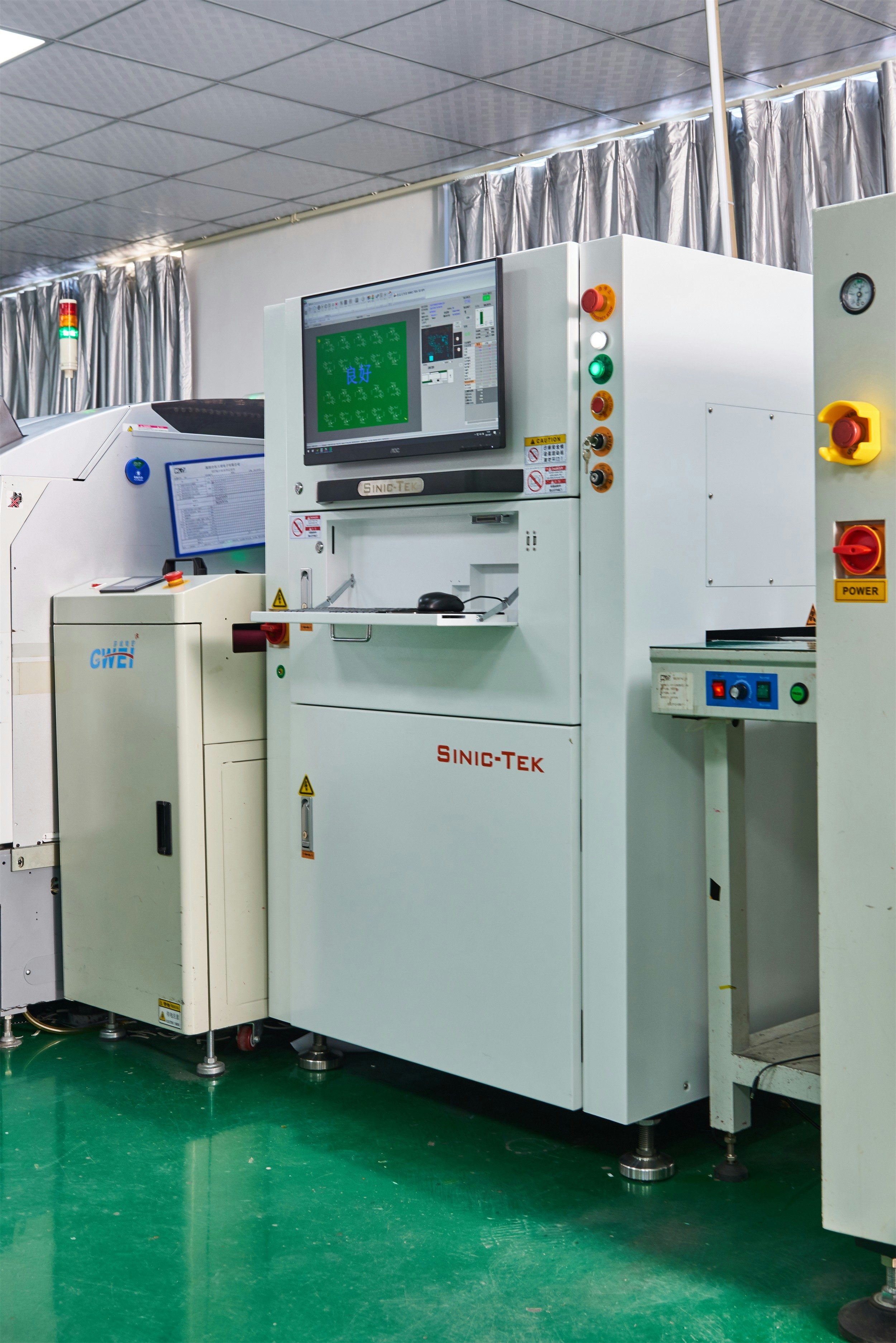Introduction to Advanced Technology
Advanced technology encompasses a broad range of innovations that significantly enhance human capabilities and processes. At its core, it includes developments in fields such as artificial intelligence (AI), biotechnology, and robotics. These domains are not only redefining traditional practices but also introducing novel methods that challenge our understanding of ethics, privacy, and societal norms.
Artificial intelligence, for example, involves the creation of systems that can perform tasks typically requiring human intelligence, such as problem-solving, learning, and understanding language. The rapid advancements in AI have led to its integration across various sectors, including healthcare, finance, and transportation. However, this ubiquity raises concerns regarding algorithmic bias, job displacement, and the implications of machine decision-making on human lives.
Biotechnology is another facet of advanced technology that has gained considerable attention. It leverages biological systems, living organisms, or derivatives to develop products and technologies that improve our quality of life. Innovations like CRISPR gene editing have made it possible to manipulate DNA with unprecedented precision. While these advancements hold the promise of eradicating genetic diseases, they also prompt ethical questions surrounding genetic modification, designer organisms, and the potential consequences of “playing God.”
Furthermore, robotics has seen tremendous growth, with machines increasingly taking on roles in manufacturing, healthcare, and even domestic environments. Robotics technology not only enhances efficiency but also poses ethical dilemmas, such as questions of autonomy, the impact on employment, and the moral implications of delegating human tasks to machines.
The rapid pace of technological innovation presents both opportunities and challenges. As we stand at the forefront of these advancements, it is imperative to engage with the ethical dilemmas they create. Addressing these issues will require a multidisciplinary approach, integrating insights from technology, law, philosophy, and sociology to ensure that we are prepared for the complexities of an advanced technological era.
Understanding Ethical Dilemmas
Ethical dilemmas are complex situations where a decision must be made between two or more conflicting moral principles. These situations often arise when an individual or organization is confronted with choices that may lead to favorable outcomes for one party but result in adverse consequences for another. In the context of advanced technology, these dilemmas can be particularly pronounced, as innovations such as artificial intelligence, biotechnology, and surveillance tools bring forth new moral considerations and challenges.
A common framework for evaluating ethical dilemmas is utilitarianism, which posits that the best action is one that maximizes overall happiness or well-being. From this perspective, the ethical evaluation of a technological advancement would consider the consequences of the action—whether it results in a net positive effect for society. For instance, the introduction of autonomous vehicles might reduce traffic accidents and improve transportation efficiency. However, the ethical dilemma arises when assessing the potential job losses in the driving industry, which may adversely affect many individuals.
Another significant ethical framework is deontology, which argues that certain actions are intrinsically right or wrong, regardless of their outcomes. This perspective emphasizes the moral obligations and duties individuals or organizations have towards others. In the realm of technology, consider data privacy issues where the ethical dilemma may revolve around the duty to protect user information versus the desire for using data to enhance services. Applying deontological principles would require a rigorous examination of whether the technology respects individuals’ rights and upholds ethical standards.
Ultimately, understanding ethical dilemmas within advanced technology emphasizes the need for balanced consideration of both utilitarian and deontological perspectives. This enables stakeholders to navigate complex issues and make informed decisions that promote ethical outcomes while leveraging the benefits of technological advancements.
Privacy Concerns in the Age of Technology
As technology continues to evolve at an unprecedented pace, the implications for personal privacy have become a pivotal concern. The proliferation of devices and applications that collect data has raised significant ethical questions surrounding the balance between technological convenience and individual privacy rights. In an era defined by advanced technology, privacy is no longer just an individual issue; it has become a societal dilemma that demands urgent attention.
The fundamental risk associated with data collection is the potential for misuse of personal information. Numerous incidents have brought to light the extent of data breaches and unauthorized access to sensitive information. For instance, widespread reports of data leaks from major corporations illustrate the vulnerabilities that come with storing large quantities of personal data. Such breaches not only compromise personal privacy but also heighten the risk of identity theft and fraud.
Furthermore, surveillance technologies, including facial recognition and location tracking, exemplify the tension between safety and privacy. Governments and organizations often argue that these tools enhance security; however, their invasive nature poses significant risks to personal freedom. A notable case involved the use of facial recognition by law enforcement agencies, sparking public outcry over potential racial profiling and the erosion of civil liberties.
Moreover, the rapid escalation of smart devices in homes raises additional privacy concerns. Smart speakers and Internet of Things (IoT) devices are continuously collecting data on user preferences and routines, leading to questions about consent and the extent to which individuals are informed about data usage. This scenario illustrates how advanced technology can inadvertently compromise personal autonomy and privacy without users’ explicit awareness or agreement.
In navigating these complex privacy issues, it is essential for both individuals and legislative bodies to advocate for stronger data protection regulations. As the dialogue surrounding advanced technology and privacy continues to evolve, finding a balance that respects individual rights while enabling technological progress will be crucial.
The Impact of AI on Jobs and Economy
The advent of artificial intelligence (AI) and automation holds significant implications for the job market and overall economy. As these technologies advance, they bring forth a dual-edged sword: while they possess the potential to enhance productivity and innovation, they also raise concerns regarding job displacement. The rapid integration of AI into various industries often results in heightened efficiency, eliminating tasks that were traditionally performed by human workers. This phenomenon has lead to apprehensions about widespread job losses, particularly in sectors such as manufacturing, retail, and customer service, where routine tasks can easily be automated.
Conversely, it is essential to examine the potential for AI to create new job opportunities. While certain roles may become obsolete, the integration of advanced technologies also fosters the emergence of new sectors and jobs that require human skills in AI oversight, maintenance, and creative input. For instance, positions related to data analysis, machine learning engineering, and cybersecurity are rapidly increasing. This duality highlights the need for a proactive approach to workforce development, enabling employees to adapt through reskilling and upskilling initiatives.
However, the economic disparities that arise from these technological advancements cannot be overlooked. While some individuals and businesses benefit immensely from AI deployment, others may face significant challenges due to the inability to pivot in the job market. Workers in lower-skilled positions might find it particularly difficult to transition to new roles, potentially widening the gap between high- and low-income earners. Furthermore, there may be geographical disparities, as regions with a high concentration of tech firms may flourish, while others could stagnate. Addressing these imbalances requires a strategic focus from policymakers, educational institutions, and industry leaders to ensure a balanced and equitable approach to the integration of AI into the economy.
Biotechnology: Ethical Dilemmas in Human Enhancement
Advancements in biotechnology, particularly in the realm of genetic engineering, present profound ethical dilemmas regarding human enhancement. These technologies engage with essential questions of consent, equity, and the implications of what are commonly termed “designer babies.” The potential to modify genetic traits raises issues about personal autonomy and the rights of individuals to make informed choices concerning their genetic makeup.
One of the foremost ethical concerns is the notion of consent, especially in cases involving embryos or children who cannot make such decisions for themselves. Genetic engineering may lead to scenarios where parents feel pressured to enhance their children’s capabilities, creating a situation in which the choice to augment or completely alter natural human traits becomes a societal expectation. This pressure could lead to a form of genetic determinism, where individuals are valued for their engineered traits rather than their inherent qualities.
In addition to consent, issues of equity arise from the accessibility of biotechnological advancements. If only a privileged segment of the population can afford such enhancements, societal divides may widen, leading to a future where genetic modifications exacerbate existing inequalities. This raises critical questions about fairness and who has the right to access these technologies, emphasizing the risk of creating a genetic elite in society.
The implications of biotechnology stretch beyond individual cases to the broader societal level, influencing how we perceive human potential. While some may argue that human enhancement through biotechnology can improve quality of life and promote human excellence, it is essential to consider the unintended consequences that may arise. For instance, reliance on genetic engineering might undermine traditional values, challenge what it means to be human, and create ethical frameworks that may not fully encompass the complexity of human life.
Military Technology and Autonomous Weapons
The integration of advanced technology into military operations has led to significant developments, particularly in the realm of autonomous weapons systems. These systems, which can conduct operations without direct human intervention, raise numerous ethical dilemmas that merit thorough examination. The potential for misuse of such technology is a primary concern. With the capability to engage targets without the necessity of human oversight, there exists a tangible risk of these weapons being deployed inappropriately or against civilian populations, leading to devastating unintended consequences.
Accountability presents another pressing issue within this context. In traditional warfare, the decision to take a life is predominantly in the hands of a human operator, who can be held accountable for their actions. However, with autonomous systems, determining liability in cases of malfunction or erroneous targeting becomes increasingly complicated. When lethal decisions are made by algorithms, it raises questions about who is responsible for the outcomes: the developer, the military leadership, or the machine itself? This ambiguity challenges existing legal and ethical frameworks and demands a reevaluation of how accountability is structured in military operations involving advanced technology.
Moreover, the moral implications of allowing machines to make critical decisions about life and death cannot be overlooked. The essence of human judgment involves empathy, the understanding of context, and the consideration of unforeseen variables. These qualities are inherently absent in autonomous systems, which may operate purely on programmed parameters devoid of ethical considerations. As technology advances, the risks associated with relinquishing control over lethal actions to machines are profound, urging a thorough discourse on whether society is prepared for such an evolution in warfare. The broader implications of deploying autonomous weapons necessitate a careful and balanced exploration of their potential benefits against these ethical concerns.
Regulation and Responsibility: Who is Accountable?
The rapid advancement of technology has fostered numerous ethical dilemmas that pose significant questions regarding accountability. As new technologies emerge, the roles of governmental regulation, corporate practices, and individual responsibility become integral to addressing these challenges. The interplay between these three components creates a framework for accountability that must evolve alongside technological progress.
Firstly, governmental regulation plays a crucial role in establishing ethical boundaries for technology. Regulatory bodies are tasked with creating and enforcing policies that ensure technological innovations are used responsibly. These regulations can include issues related to data privacy, cybersecurity, and ethical AI practices, among others. Effective legislation not only safeguards public interests but also sets the standard for corporate and individual behaviors. The challenge lies in keeping regulations relevant and adaptive to rapidly changing technological landscapes, ensuring that accountability remains a priority.
Corporate practices, on the other hand, must align ethics with business objectives. Companies develop and implement technologies in ways that reflect their values and societal responsibilities. This includes instituting ethical guidelines and establishing governance frameworks that prioritize transparency and accountability in decision-making processes. Businesses must also critically assess the broader implications of their innovations, fostering a culture of ethical awareness among employees. Ultimately, the responsibility of corporations extends beyond profit generation; they must navigate the ethical terrain that their technologies influence.
Lastly, individual responsibility cannot be overlooked when discussing accountability in technology. Individuals, as users and contributors to technological ecosystems, bear a part of the ethical burden. This includes being informed about the technologies they use and understanding their implications. By actively engaging in discussions about ethical practices and demanding accountability from companies and regulators, individuals can influence positive change in how technology is developed and utilized.
Public Perception and Ethical Technology
The intersection of public perception and ethical technology is a dynamic space that significantly influences the development and adoption of advanced technologies. As society increasingly encounters sophisticated technological advancements—ranging from artificial intelligence (AI) to biotechnology—the perceptions that individuals hold towards these innovations play a crucial role in shaping ethical considerations. Understanding how the public perceives technology helps policymakers formulate guidelines that both encourage technological advancement and safeguard ethical standards.
Surveys and studies reveal that public opinion often dictates the paths of technological implementation. For instance, a survey conducted by Pew Research Center indicated that apprehension surrounding AI, particularly regarding job displacement and privacy, can lead to public resistance against its widespread adoption. Such attitudes draw attention to the ethical implications of technology that may infringe upon basic societal norms. When the public expresses concern over a technology’s potential misuse or impact on human rights, it creates pressure on companies and governments to establish ethical guidelines governing its use.
Moreover, examples from history illustrate how societal attitudes have shaped technological policy. The introduction of genetically modified organisms (GMOs) faced significant public opposition due to perceived risks to health and the environment. This resistance triggered extensive regulatory oversight that continues to influence the industry today. Such instances highlight the vital role public discourse and perception play in determining the ethical structure surrounding new technologies.
In conclusion, the relationship between public perception and ethical technology is reciprocal. The attitudes and beliefs of society shape the ethical frameworks that govern technological innovations, while the technology’s ethical considerations can, in turn, inform public opinion. As advancements continue to unfold at a rapid pace, fostering a dialogue between the public and policymakers becomes essential in addressing the ethical dilemmas posed by new technologies.
Conclusion: Are We Ready for Advanced Technology?
As we have explored throughout this blog post, advanced technology presents us with a myriad of ethical dilemmas that warrant serious reflection. From privacy concerns related to data collection to the implications of artificial intelligence in decision-making processes, these issues highlight the complex relationship between innovation and ethical responsibility. The benefits of advanced technology, such as improved efficiency, better healthcare solutions, and enhanced communication, are undeniable. However, these advantages come with inherent risks that must not be overlooked.
Technological advancements have the potential to reshape society, yet they also challenge our moral frameworks and societal norms. With each leap forward, we confront difficult questions about equity, privacy, and the human experience itself. For example, while automation can drive productivity, it raises concerns about job displacement and the future of work. Similarly, while biotechnology promises breakthroughs in health, it necessitates stringent ethical considerations regarding genetic manipulation and personal autonomy.
As we stand at the precipice of this technological revolution, it is essential for us to engage in meaningful discussions about the ethical implications. This is not merely an academic exercise; it requires input from diverse stakeholders, including policymakers, technologists, and ethicists. Public discourse on these matters can play a pivotal role in shaping the trajectory of technological development in a way that prioritizes human welfare alongside innovation.
Ultimately, we must ask ourselves: are we truly ready to embrace the future that advanced technology promises? This question invites introspection and proactive engagement with the ethical dilemmas we face. By acknowledging the potential benefits and risks, we can better navigate the complexities of our technological landscape and strive for a future that aligns with our collective values and ethical principles.



